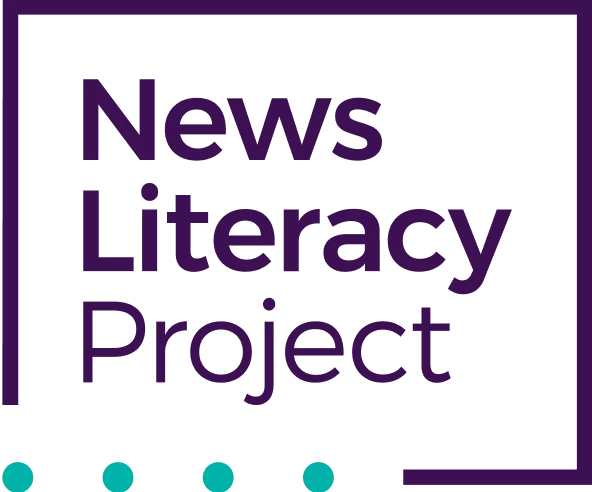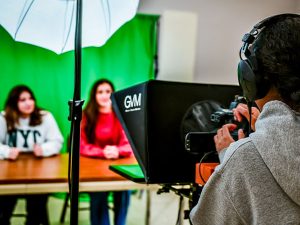AI slop comes for KPop Demon Hunters, sowing ‘deep doubt’ across the internet
By: Hannah Covington
It was only a matter of time before the surreal world of artificial intelligence slop came for KPop Demon Hunters, Netflix’s smash animated hit that follows a trio of demon-slaying K-pop stars.
The film is a prime target for this synthetic sludge. Fake songs, unnerving character art and odd spinoff clips are popping up everywhere, capitalizing on the film’s popularity to amass millions of views. Much of this content appears to be AI-generated.
The playbook is predictable: Online opportunists pounce on trending topics to siphon off engagement and turn a quick profit.
Equal parts uncanny and spammy, AI slop is low-quality content that’s choking social media feeds with junky text and visuals. It brings out the worst of the attention economy.
In online spaces where human attention is monetized for ad revenue, trolls seeking engagement are resorting to increasingly strange tactics to halt people’s scrolling. It gets weird fast: Images of Jesus made of shrimp. Half-animal, half-human babies. Strange, emotional videos of human-like cats.
Beyond the bizarre pall overtaking social media, the rapid rise of generative AI has also raised pressing concerns about its impact on people’s health, relationships, civic participation, the environment and more.
AI tools are muddying public understanding of major news events, prompting precedent-setting legal battles over intellectual property and disrupting creative work. This technology is also, in the words of The Atlantic’s Charlie Warzel, making “people feel like they’re losing it.”
No wonder the Oxford Word of the Year for 2024 was “brain rot.”
Yet another dark side of generative AI — and the monetized muck it can churn out — is how it fuels a way of thinking that’s been described as “deep doubt.”
In a world where anything can be faked, it seems like nothing can be trusted. Bad actors then weaponize this distrust to deny what’s real.
It’s not hard to see where this confusion over what is real can lead. As synthetic media becomes more convincing and widespread, politicians and others can take advantage of people’s skepticism and more easily dismiss accurate but unflattering content as fake. Experts call this the “liar’s dividend.”
For bad actors, the end game is not as much about making people believe an untrue thing; it’s making them distrustful and uncertain about everything. Therein lies the danger of deep doubt.
We’ve seen this doubt seep into the public’s understanding of global conflicts in dangerous ways, with evidence of actual atrocities dismissed as fake.
Hear from Hannah Covington about how artificial intelligence is causing cynicism of authentic content.
Even the vibrant, colorful world of KPop Demon Hunters has seen deep doubt creep in. A viral post on X about the film’s soaring anthem “Golden” — which became the first song from a K-pop girl group to top Billboard’s Hot 100 singles chart — stoked debate over whether AI was used.
It prompted songwriter-rapper Rei Ami, who provides the singing voice of a lead character, to clap back, dismissing the claims and reaffirming the human talent behind the film.
Still, the confusion is understandable.
AI-generated music is already filling playlists on YouTube, clocking huge numbers on Spotify and tricking fans into thinking real artists have released new material. Amazon and other marketplaces have also been inundated with AI-generated listings.
Some have wondered if the internet’s AI slop problem will increasingly push people to log off. As a news literacy educator, my hope is that an internet overrun with synthetic garbage will spark a renewed appreciation for high-quality, vetted information.
AI technology has advanced to the point that even experts struggle to separate real from fake. Relying on trusted sources matters more than ever.
Trampoline bunnies, disorienting crochet cats and K-pop knockoffs may seem harmless, but the proliferation of slop can make everything feel suspect.
It’s the latest stretch in a long slide toward doubt. People have been sowing distrust in accurate information and flooding the internet with fakes for years. But generative AI marks a sea change in the tools available to produce ever-more realistic synthetic media at an unimaginable scale.
As bad as AI slop is, if we let synthetic content blunt our ability to know what’s true and allow it to infect public discourse with nihilism, we’re in for far worse things than unsettling videos of KPop Demon Hunters characters giving birth (spoiler: they’re disturbing).
That’s where a measured, critical approach to AI comes in. Don’t let AI shake your confidence in figuring out what’s real. Credible information is out there. You just have to wade through slop to find it.
Hannah Covington helps create free classroom resources at the News Literacy Project, a nonpartisan education nonprofit that works with teachers, school districts, states and community partners to ensure students in all 50 states receive news literacy instruction before they graduate from high school.





